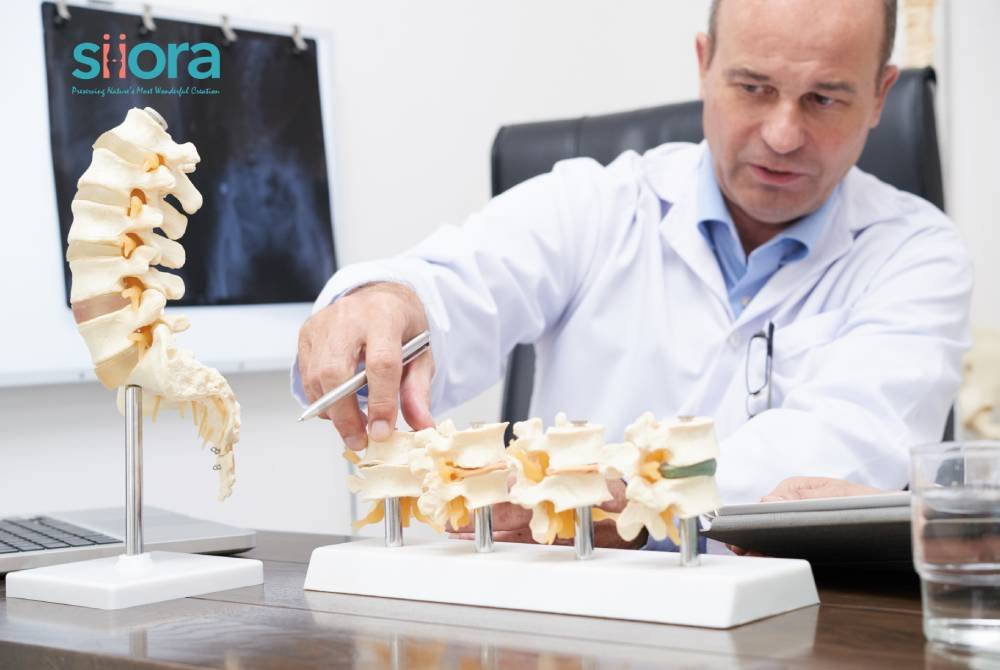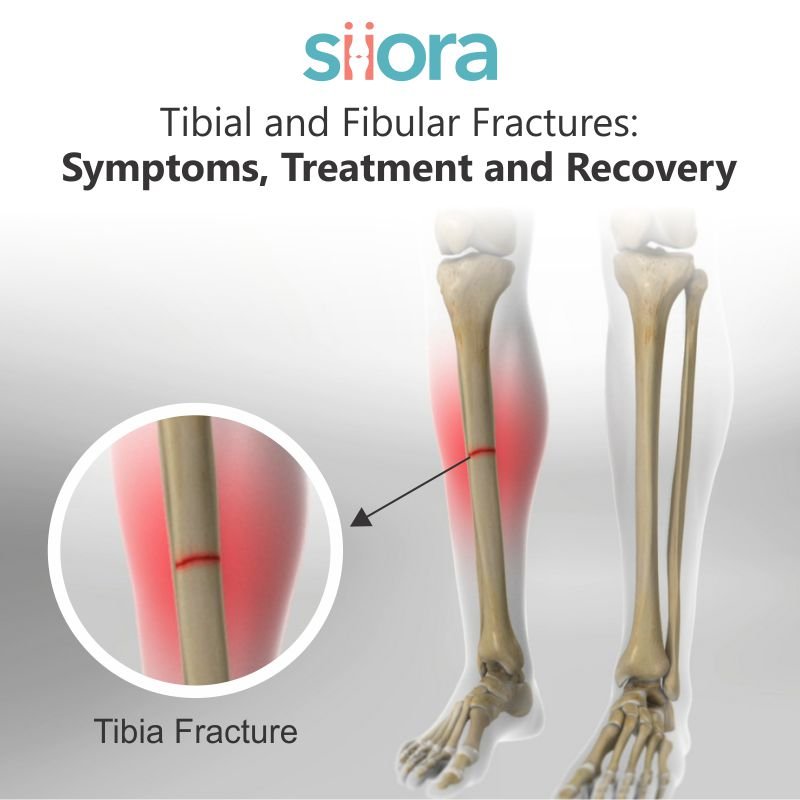In recent years, there has been a paradigm shift in the field of orthopedics with the advent of biodegradable orthopedic implants or bioabsorbable implants. These innovative medical devices offer a sustainable solution to traditional orthopedic interventions, addressing concerns related to long-term implant presence, environmental impact, and patient well-being. However, at this point, it is not possible to completely rely on such implants due to certain constraints. Yet, they have played a significant part in improving orthopedic care and treatment outcomes. This blog will outline the rise of biodegradable implants, their applications in orthopedics, and the promising future they hold for both patients and the planet.
The Need for Sustainable Orthopedics
Orthopedic surgeries often involve the use of trauma implants and instruments to repair or replace damaged bones and joints. Traditional implants, typically made of metals such as medical-grade titanium or stainless steel, serve their purpose effectively but come with drawbacks. The permanence of these implants raises concerns about long-term complications, including infections, inflammation, and the need for revision surgeries. Moreover, the environmental impact of manufacturing and disposing of non-biodegradable implants has become an increasingly pressing issue. However, despite these concerns, the use of metal orthopedic implants has successfully been there for decades. Continuous advancements and improvements in technologies have significantly seen a drop in the concerns regarding these implants. However, considering future aspects, the fact can also not be denied that something sustainable and more reliable is required when it comes to addressing orthopedic issues.
Biodegradable Orthopedic Implants: A Game-Changer in Orthopedics
Biodegradable implants, crafted from materials that naturally break down over time, offer a groundbreaking alternative to conventional orthopedic interventions. These bioabsorbable/biodegradable implants are designed to provide temporary support during the healing process, gradually degrading as the patient’s own tissue regenerates. This eliminates the need for additional surgeries to remove permanent orthopedic implants, reducing the risk of complications and improving overall patient outcomes.
Materials Used for the Manufacturing of Biodegradable Orthopedic Implants
Several biodegradable materials have emerged as key players in revolutionizing orthopaedic implants. Poly(lactic-co-glycolic acid) (PLGA), a biocompatible polymer, is a popular choice due to its appropriate degradation rate and excellent mechanical properties. Additionally, materials like polylactic acid (PLA) and hydroxyapatite-based composites have shown promise in supporting bone regeneration while naturally breaking down over time.

Applications in Orthopedics
Biodegradable implants have found applications in various orthopedic procedures, including fracture fixation, ligament repair, and joint reconstruction.
Fracture Fixation
In fracture fixation, for example, biodegradable orthopedic screws and plates provide stability during the initial healing phase and gradually disappear as the bone heals. This approach reduces the risk of implant-related complications and accelerates the patient’s recovery.
Ligament Repair
In ligament repair, biodegradable scaffolds support the growth of new tissue, promoting natural healing without the need for permanent fixtures. This is particularly beneficial in procedures like anterior cruciate ligament (ACL) reconstruction, where the use of biodegradable implants minimizes the risk of inflammation and avoids interfering with the biomechanics of the joint.
The environmental benefits of bioabsorbable/biodegradable implants extend beyond the operating room. As these implants naturally break down, there is a reduced environmental burden associated with the production, transportation, and disposal of traditional non-biodegradable implants.
Advantages and Disadvantages of Biodegradable Orthopedic Implants
Advantages
Reduced Complications and Revision Surgeries
Biodegradable implants eliminate the need for additional surgeries to remove permanent fixtures. This significantly reduces the risk of complications associated with long-term implant presence, such as infections, inflammation, and the need for revision surgeries.
Natural Healing and Tissue Regeneration
They support and facilitate the natural healing process by providing temporary structural support. As the implant gradually degrades, it allows the patient’s own tissues to regenerate, promoting a more natural and robust recovery.
Customizable Degradation Rates
The properties of biodegradable materials can be tailored to match the specific needs of each patient. This includes adjusting the degradation rate to align with the expected healing timeline. This provides a personalized approach to orthopedic care.
Minimized Interference with Imaging
Unlike permanent metal implants that can interfere with imaging techniques such as MRI, biodegradable implants reduce the likelihood of such complications. This allows for clearer and more accurate diagnostic imaging during follow-up assessments.
Environmentally Sustainable
One of the significant advantages of biodegradable implants is their positive impact on the environment. These implants reduce the environmental burden associated with manufacturing, transportation, and disposal of non-biodegradable implants, aligning with the growing focus on sustainable healthcare practices.
Disadvantages
Variable Mechanical Strength
Achieving a balance between sufficient mechanical strength and the desired degradation rate poses a challenge. Some biodegradable materials may not provide the same initial strength as traditional implants, raising concerns about their ability to support the affected area during the critical phases of healing.
Inconsistent Degradation Rates
The degradation of biodegradable implants may vary among individuals, depending on factors such as age, overall health, and local tissue conditions. This variability can complicate the predictability of the implant’s lifespan and may necessitate a more individualized approach to implant selection.
Limited Application in Load-Bearing Areas
Biodegradable implants may not be suitable for all orthopedic applications, especially in load-bearing areas where long-term structural support is essential. The challenge lies in developing materials that can withstand mechanical stress while still degrading predictably.
Cost Considerations
At present, the production of biodegradable materials with optimal properties can be more expensive than traditional implant materials. As technology advances and economies of scale are realized, the cost barrier may decrease, but currently, it remains a consideration in widespread adoption.
Regulatory Challenges
Standardization of manufacturing processes and regulatory guidelines for biodegradable implants is an ongoing challenge. Ensuring consistent quality and safety across different materials and manufacturers is essential for widespread acceptance and usage in clinical settings.
Challenges and Future Directions
While the rise of biodegradable implants represents a significant advancement in orthopedics, challenges remain. Achieving an optimal balance between strength, degradation rate, and biocompatibility requires ongoing research and development. Additionally, standardization of manufacturing processes and regulatory guidelines is crucial to ensure the safety and efficacy of these implants across different patient populations.
The future of biodegradable implants in orthopedics looks promising, with ongoing advancements in material science, 3D printing technology, and tissue engineering. Tailoring implant properties to match the specific needs of individual patients is a goal. This will give the way for personalized orthopedic solutions that enhance both short-term and long-term outcomes.
Conclusion
The rise of biodegradable implants signifies a transformative era in orthopedics, where sustainability meets medical innovation. These implants not only offer improved patient outcomes by minimizing complications but also contribute to a greener, more environmentally conscious healthcare landscape. As research and development in this field continue to progress, biodegradable implants are poised to become the standard in orthopedic care, considering the new era of healing that prioritizes both the patient and the planet.
Siora Surgicals Pvt. Ltd. is a renowned orthopedic implant manufacturer in India operating for over 30 years. The company fabricates hundreds of different types of CE-certified orthopedic implants and instruments using medical-grade stainless steel and titanium. Siora has a strong national and international market presence, and is also a trustworthy OEM/contract manufacturing service provider across the globe.








